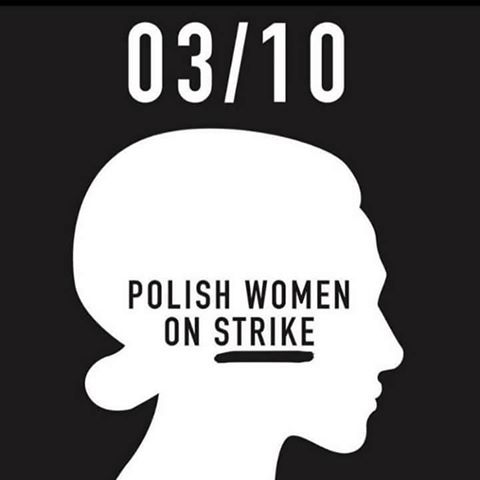 Protesters wearing black clothing demonstrated in many cities including Warsaw.
Protesters wearing black clothing demonstrated in many cities including Warsaw.
In August, the citizens’ coalition “Stop Abortion!” submitted to the Parliament a draft law changing the provisions allowing abortion and introducing a complete ban on abortion. The draft was supported by over 450,000 people. At the same time, the citizens’ coalition “Rescue women” submitted a draft law liberalising the provisions concerning abortion.
Right now, in the light of Polish law, abortion is allowed only in three cases: when the foetus is severely malformed, when the pregnancy poses a serious risk to the mother’s health or life and when the pregnancy is a result of a crime (rape or sex with a minor).
During its session in mid-September, the Parliament decided to reject the draft law liberalising access to abortion and, at the same time, to continue the works on the draft law introducing a complete ban on pregnancy termination.
In the light of this draft, termination of pregnancy is illegal and can be punished with imprisonment up to 5 years. However, if termination is a result of a medical treatment undertaken by a doctor to rescue the life of the mother it is not punishable. Still, such a case could be verified by the prosecution. So, the prosecutor will decide on a case by case basis whether particular medical treatment was properly carried out and its actual purpose was to rescue the mother’s life.
Furthermore, if termination of pregnancy is a result of unintentional acts undertaken by the mother, she will not be punished. However, again, the decision whether actions were unintentional or not should be made by the prosecutor.
HFHR submitted a legal opinion regarding this draft. In HFHR’s opinion, criminalisation of unintentional conduct which results in the death of the foetus may effectively deter doctors from ordering pre-natal diagnostic tests and may result in mothers’ reluctance to undergo medical treatment (more information is available here: http://www.hfhr.pl/en/foundation-critical-on-draft-of-anti-abortion-law/)
The Parliament will continue its works on this draft in October.
Following the example of Icelandic women in 1970s, on 3 October Polish women went on strike as a warning. Many women refused to show up at work and instead joined numerous protests in the cities around Poland. The action “Black Monday” has gone viral – thousands of internet users published their pictures of them wearing black under the common hashtag #czarnyprotest (meaning: black protest).





